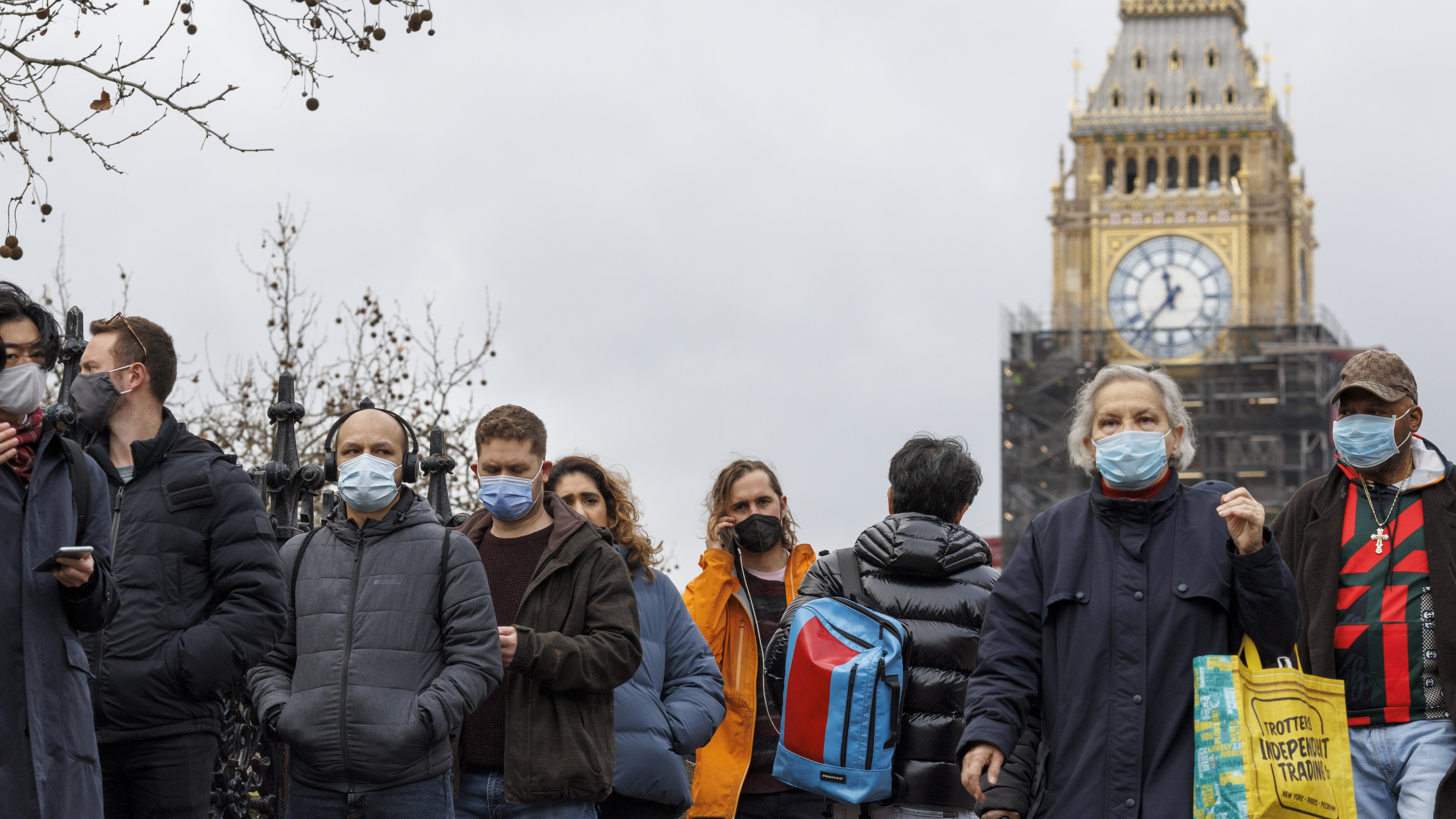‘Milder variant’: the reasons for Omicron hope
Insiders say government experts believe the Covid-19 variant causes less severe illness than Delta

A free daily email with the biggest news stories of the day – and the best features from TheWeek.com
You are now subscribed
Your newsletter sign-up was successful
People infected with the Omicron strain of Covid-19 are less likely to become severely ill than those who contract Delta, UK government scientists are expected to announce.
Sources say the UK Health Security Agency (UKHSA) will “publish its early real-world data on the severity of the disease before Christmas”, according to Politico London Playbook’s Alex Wickham. The overall outlook is reportedly “mixed”, with “some positives and some negatives”.
But the data shows that the highly contagious new variant “seems milder overall”, although “not necessarily mild enough to avoid large numbers of hospitalisations”.
The Week
Escape your echo chamber. Get the facts behind the news, plus analysis from multiple perspectives.

Sign up for The Week's Free Newsletters
From our morning news briefing to a weekly Good News Newsletter, get the best of The Week delivered directly to your inbox.
From our morning news briefing to a weekly Good News Newsletter, get the best of The Week delivered directly to your inbox.
‘Milder variant’
According to Politico’s Wickham, the UK’s most senior government scientists have “confirmed that transmissibility of Omicron is very high, meaning that even though it is milder, infections could rocket to the point large numbers still end up in hospital”.
But on the plus side, most infected people are expected to have “less serious symptoms”, a result that the experts also attribute to “Britain’s large number of vaccinated and previously infected people”, said Wickham.
A government insider told Politico that the findings show that “it was right for us to wait for more data” before imposing further restrictions ahead of the festive period.
All the same, Wickham pointed out, the data “does not exactly pave the way for a clear-cut decision for ministers”, given the predicted uptick in hospitalisations.
A free daily email with the biggest news stories of the day – and the best features from TheWeek.com
But in another sign of hope, the UK Health Security Agency is also expected to report that “while two doses of a vaccine are not enough to offer strong protection, a booster dose does significantly reduce the chance of both symptomatic infection and ending up in hospital”.
This verdict is supported by the findings of scientists in South Africa, where Omicron was first detected. Hospitalisations in the country have begun falling after a rapid spike in infections last month triggered by the newly discovered strain.
The first major study into Omicron’s severity in South Africa found that people infected by the variant were “markedly less likely to be hospitalised” than patients in previous waves, the Financial Times’ chief data reporter John Burn-Murdoch tweeted.
On a less positive note, those who were hospitalised with Omicron were “roughly as likely as Delta” patients to experience “severe” symptoms – “showing that once in hospital”, a patient’s “main immune defences have been breached, so at this point Omicron and Delta are broadly the same in terms of outcome”, Burn-Murdoch suggested.
‘Darkest days’ behind us
While the UK Health Security Agency is expected to predict “mixed” fortunes in the battle against Covid, the “exponential surge of Omicron” in the capital appears to be abating, the London Evening Standard reported.
Since the start of December, the tally of coronavirus patients in the city’s hospitals has jumped by 830 to 1,904 – a 77% increase. But health chiefs “believe there are signs the rise in Omicron cases – while still continuing – may now be slowing, with people changing their behaviour to limit the spread of the virus, including working from home”, said the paper.
An analysis by the Sky News’ Data and Forensics Journalism Unit found that the increase in case numbers in London to date “is far steeper than the increase in the number of hospital admissions”. This supports suggestions that “the virus itself is less severe or we are better able to deal with it” owing to vaccine coverage, said the broadcaster. “In terms of public health, it doesn't really matter which is true, it’s good news either way.”
The Telegraph’s science editor Sarah Knapton also speculated that the “darkest days” of the Omicron outbreak “could be behind us”.
“After weeks of relentless growth, the first signs of a slowdown have begun,” she wrote. In a “glimmer of light”, some experts have begun “speculating that England may even have peaked”, with case rates “reassuringly low in areas with high vaccination”.
Paul Hunter, a professor in medicine at the University of East Anglia, said that “it looks as though this previous rapid increase may have slowed quite dramatically”.
Boosting hopes that a repeat of last winter can be avoided, he added: “And if that is the case then there probably isn’t a need for a lockdown.”